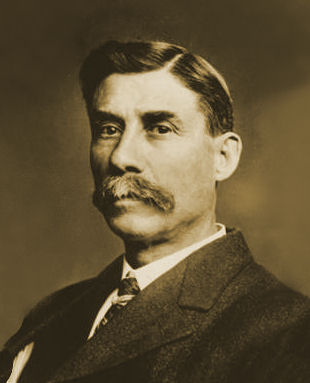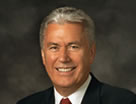 |
| Picture provided by lds.org |
Our moto is "Kindness, Civility, Decency, Honesty, Integrity." These words originate in a quote from LDS Church President Gordon B. Hinckley. (Gordon B. Hinckley. Discourses of President Gordon B. Hinckley Vol 1: 1995-1999. Deseret Book. pg. 270) They were spoken during an address given in Boston, Mass., at a Regional Conference of Priesthood Leadership, on April 22, 1995.
President Hinckley spoke again about the significance of these same words, when he gave the keynote address on April 27, 2001 at the Utah Valley State College Commencement Exercises. Here are some quotes from that speech. His words give us insight about why President Hinckley felt these virtues were so significant.
"And so I say to you on this commencement day, speaking out of an experience of very many years, and with love and a concern in my heart--to you I say, as you go forth from this great institution, wherever life may take you, wherever you may find yourself in the years that lie ahead, regardless of your vocational pursuits, walk the road of simple virtues.
. . . .Be decent. Bring into your lives the miracle of the golden rule: "Therefore all things whatsoever ye would that men should do to you, do ye even so to them" (Matthew 7:12). Women weep in despair as inconsiderate husbands constantly find fault, seeing no good in anything their wives do. I have dealt very much with divorce and troubled marriages. I have come to one conclusion, and that is if we will make the comfort and well-being of our companion our greatest concern, happiness will follow. There are fathers and mothers who destroy their children with vicious criticism that only brings on discouragement and failure. There would be far fewer troubles in the world if there were just a little more common decency among people.
Be honest. It is such a simple thing and yet so very difficult for so very many people. Great is the man, regardless of his other accomplishments, who is known as one of integrity, on whose word all can depend. Said Shakespeare, "To thine own self be true, and it must follow, as the night the day, thou canst not then be false to any man" (
Hamlet, act 1, scene 3).
Churchill once said that the first victim of war is truth. It seems, in so very many cases, that truth is also the first victim of business and many other activities.
My dear friends, these things are so simple that they scarcely seem worthy of mention. And yet they are the very fabric of life. When all is said and done, when you have lived your life and grown as old as I am, you will recognize that it is the simple virtues that count, that make the great differences in our lives. It is better to sleep at night with a clear conscience than to worry oneself sick while living a fraud.
And so I speak to you today as an old man, talking to you whose lives are ahead of you. I leave with you two verses of scripture, one from the Old Testament and one from the New. From Deuteronomy: "And now, Israel, what doth the Lord they God require of thee, but to fear the Lord they God, to walk in all his ways, and to love him, and to serve the Lord they God with all thy heart and with all thy soul" (Deuteronomy 10:12). And from the book of James: "Pure religion and undefiled before God and the Father is this, To visit the fatherless and widows in their affliction, and to keep himself unspotted from the world" (James 1:27).
When all is said and done, our success in life will not be spelled out in the money we make, in the honors we attain, in the plaudits of men, but in those virtues which become the essence of that which is greatest within each of us.
Think upon that a little. Think of it in terms of what really counts in life, of what builds relationships between people, of what really moves the world forward in peace, and then act accordingly. Observe the simple and seemingly unimportant values, and then the larger virtues will take care of themselves." (Gordon B. Hinckley. The Discourses of President Gordon B. Hinckley Vol 2: 2000-2004. Deseret Book. pgs. 487-490)




















